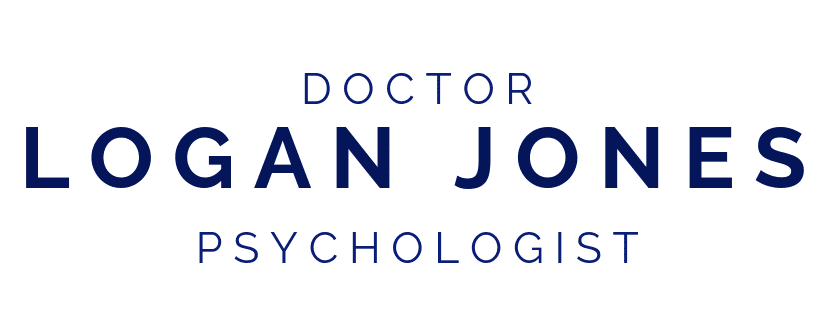5 WAYS TO CREATE A HEALTHY WORK ENVIRONMENT AND BECOME A BETTER CO-WORKER
5 WAYS TO CREATE A HEALTHY WORK ENVIRONMENT AND BECOME A BETTER CO-WORKER
Here on this blog we’ve discussed how to enrich your life through therapy, counseling, and mindfulness practices such as meditation. I want to reiterate that taking care of your mental health is a personal responsibility, and it is extremely important to prioritize getting becoming familiar with your mind, habits, and patterns of thinking. Spending some purposeful time for reflection is a great way to begin to notice your patterns and start making healthier, more self-empowering choices.
However, let’s face it—we don’t live in a vacuum. We are each a part of a larger social context over which we won’t always have control. While we can, for the most part, control the energy we allow into our homes, we can’t control the energies we encounter in more public spaces like the office. The fact is, work can get stressful for everyone; sometimes we are bound to interact with negative or unproductive energies, and we can’t always excuse ourselves for a meditation break or a mindful walk. So how do we protect a sense of inner peace at work?
The best way to protect your own energy at the office is to contribute to a healthy, supportive work environment. You improve the general flow of energy at work by setting an example of peace and personal responsibility in your own actions

TIP #1: BE A SOLUTION-ORIENTED CO-WORKER
When we’re stressed out, it can be very easy to nitpick or find a problem everywhere we look. The more productive choice is to switch our impulse from searching for problems to searching for solutions.
Approach any unforeseen bumps or hiccups in the office with a, “what can we do to fix this?” attitude.
Shifting your perspective in this way not only makes the team as a whole more efficient, but also distinguishes you as a thought-leader and a problem-solver. People will respect and admire your initiative and ability to remain calm and clear-headed. Remember, no one likes a negative-nancy, so the next time a problem arises, ask yourself—“do I want to be a part of the problem, or the answer?”
TIP #2: SHOW GRATITUDE FOR YOUR CO-WORKERS AND COLLEAGUES
We all know how it feels to be taken for granted at one point or another. By the same token, we all also know how wonderful it feels to be acknowledged for the good that we have done, or the effort that we bring to the table every day. Showing gratitude for your co-worker or an employee is a simple and effective way to boost office morale and contribute to a culture of positivity.
It is important to note that showing gratitude and being positive is not the same as “sucking up.”
You want to make sure you are always coming from a place of genuine appreciation and authenticity. Showing gratitude can be as simple as commending someone for a job well done.
Ask yourself, “what additional phrases or statements can I sprinkle in this email that will improve my working community?” Know that you will be better supported by your teammates if you are supportive of them, and you are more likely to be acknowledged if you acknowledge others. Ask yourself, “is there someone that I can acknowledge in this email before I press send?” Little things like this go a long way.
TIP #3: BE MINDFUL OF YOUR TONE
The fact of the matter is that sometimes things go wrong—errors are made and sometimes people drop the ball. This does not mean that we have to be nasty or harsh in our responses.
Hold your coworkers accountable while also maintaining compassion by using a calm, respectful tone.
If you find yourself in the position of having to reprimand someone, do so with compassion, positive expectation, and grace. It often helps to address office problems or errors in person, rather than over email where tone can be easily misconstrued. Additionally, speaking to the person in question one-on-one rather than in a meeting in front of all of their peers may make them feel safer and more respected at work. We can hold each other accountable without ridicule or embarrassment. Another simple step that helps with tone is to remember to always say “please” and “thank you.”
TIP #4: BE A SOCIAL CO-WORKER
Not everyone wants to be overly-friendly at work, and that’s okay. It does help, however, to at least make some small effort to include yourself in the office culture. Say “good morning” when you pass by your coworkers instead of walking in with your headphones on every day. Take note of people’s birthdays and ask them how their weekends went. These are all non-invasive ways to share some human-to-human connection.
It can be helpful for your coworkers to see you as a friendly, positive energy, rather than just the person who sits at the desk across the way.
If you don’t mind going the extra mile or you’re an extrovert by nature, office parties or happy hours are a great way to engage a little further and create real relationships.
TIP #5: DON’T ENGAGE IN OFFICE GOSSIP WITH A CO-WORKER
Take note that there are productive and unproductive ways to be social, and engaging in office gossip is not the way to go. I know it can be tempting to gossip as a way to create comradery with a fellow co-worker, but in reality, it only creates a toxic environment. If someone will gossip to you, they will most likely gossip about you, so break the cycle by refusing to engage in unkind chatter.
In general, I recommend what I call the practice of “the nobility of silence.” I tell clients that there is nobility in remaining quiet when the energy surrounding a conversation is of a gossipy, bitter, or unkind nature. Generally speaking, it is better to be silent than to be mean, and over time as people get used to you not gossiping, the amount of negative talk around you will reduce.
Your silence is a sign of nobility, and it will result in people trusting you more and thinking more highly of you when they don’t hear you gossiping about other people.
For a time, you may feel awkward or like the odd one out if you refrain from these kinds of conversations, but in time the space that gossiping used to fill will slowly be replaced by more stimulating and intimate conversations. If you find yourself slipping back into unproductive talk, ask yourself, “are my words uplifting?” Use your conversations to solve problems and build a co-worker up instead of tearing them down.
Remain grounded and compassionate at work with your co-workers
These are just five ways to become a better co-worker and improve the work-culture on your team or in your office. Neutralize the toxicity you may encounter by remaining grounded and compassionate in your behaviors and responses to others, and you’ll notice you won’t carry as much negative energy home with you.
DO YOU WANT TO LEARN MORE ABOUT CREATING A HEALTHY WORK ENVIRONMENT AND BECOMING A BETTER CO-WORKER?
For more information about maintaining mindful behaviors as a working professional, contact Dr. Logan for a free consultation at 646.798.8354.
Dr. Logan Jones is NYC Psychologist. He provides therapy for stress, anxiety, depression, intimacy issues, and coaching for entrepreneurs, creative professionals, and adults who want to make positive changes in their lives. His passion is to help people find healthier perceptions of themselves and strengthen their relationships so that they may feel more peaceful, complete, whole, and safe. His practice is located near Flatiron, Chelsea, NoMad, Union Square and the West Village. Contact him today for a complimentary phone consultation.
Follow Dr. Logan Jones on Instagram for more daily inspiration: @drloganjones

No matter what you’re going through, whether depression, anxiety, or PTSD, there is hope. If you are looking for therapy in NYC his psychotherapy practice is located in central Manhattan near Flatiron, West Village, NoMad Chelsea, or Union Square.


